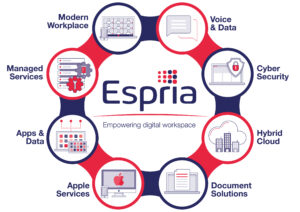It’s no secret that the consequences of the Russia-Ukraine war are widespread, impacting the world in ways no one could have foreseen. As the tension continues, organisations have noticed a sharp increase in cyber-attacks. According to Bridewell Consulting’s research, 86% of organisations have reported an increased number of cyber-attacks since the start of the Ukraine war and 69% worry their systems are vulnerable to attack. With sustained attacks including DDoS, new data wipers, phishing campaigns and malware on government organisations, businesses across the globe are in danger of being caught in the cyber-crossfire.

The cyber threats are particularly concerning for critical infrastructure where IT and OT/ICS are highly interconnected. In these circumstances, a compromise may have a domino effect leading to potentially devastating consequences. While nation-state hackers may display a sense of focus and restraint, an ad-hoc army of freelance hackers is more unpredictable, leading to new vulnerabilities for both people and businesses.
This surge in cyber-attacks creates a unique sense of vulnerability for businesses. With heightened cyber-risks, there is an urgent need for organisations to become cyber-resilient. The Government department for Digital, Culture, Media & Sport (DCMS), along with Julia Lopez MP has urged businesses and charities to strengthen their cyber security practices now. This comes at a time when the National Cyber Security Centre has published guidance on the steps organisations can take when the cyber threat is heightened.
It’s imperative for businesses to focus their attention on their cyber security efforts, starting with what has failed in the past and seeking solutions to address these failures. This will allow businesses to learn from previous mistakes and take ownership of their own network security, or risk being collateral damage in the cyber crossfire.
Aligning digital transformation with cyber-resilience
Many businesses fast-tracked their approach to digital transformation during the Covid-19 pandemic. As such, organisations were forced to ease security procedures to help staff adjust to remote working, creating a variety of security issues. The emerging all-digital lifestyle and work-from-home environment will continue to complicate cyber security and give criminals new vulnerabilities to attack.
In Deloitte’s recent article on the impact of Covid-19 on cyber security, it highlights a Swissinfo.ch report of figures from the NCSC (National Cyber Security Center) for June 2020. These figures indicated individuals working at home do not have the same level of inherent protection/deterrent measures compared to an office working environment.
Reimagining traditional password security
The main reason criminals easily gain access and command over a network is due to the inherent weaknesses apparent in the traditional approach to network security. In the office workspace, organisations distribute passwords to their employees directly, rather than having an employee craft a key themselves. The power lies in the hands of the business, rather than the individual.
But when companies went digital, they flipped that process around. Suddenly, they let their employees create their own keys to every system, transferring ownership and control of access to them. From that moment, organisations no longer knew or had control over when, where, and how employees would share, lose, or reuse passwords.
The ability for employees to share, lose, and reuse their passwords without their organisation knowing, leads to tactics such as phishing, social engineering, credentials stuffing and password spraying to allow cyber criminals to get past unsuspecting users.
Cyber criminal’s access points
Loosening the security rules and regulations on staff to support remote work continues to cause several security issues.
For instance, it has proven to be problematic to blindly give untrained staff permission to connect their personal devices to the enterprise network or use employer-supplied computers for personal use. Doing so can create various problems, even something as simple as clicking on a phishing link within a personal email, can cause enormous disruption, if only to the work flow of the IT team tasked with resolving the issue.
The problem is compounded as employees increase the chances of a threat through their personal Wi-Fi networks that have no security policies in place. Once connected they’re often using a VPN, granting open-ended authorisations to access entire suites of corporate files and data, without background verification checks or security reviews.
Regain control of your network, before it’s too late
Businesses should invest to secure their networks. They should adopt a high-bandwidth network infrastructure, upgrade security protocols, establish internal policies giving guidelines on how employees should protect company data and information, and improve password protection by enforcing multifactor authentication.
Faced with the increased risk of getting caught in the cyber crossfire, it is not too late for organisations to take responsibility for the security of their networks and make their digital infrastructure cyber-resilient.

